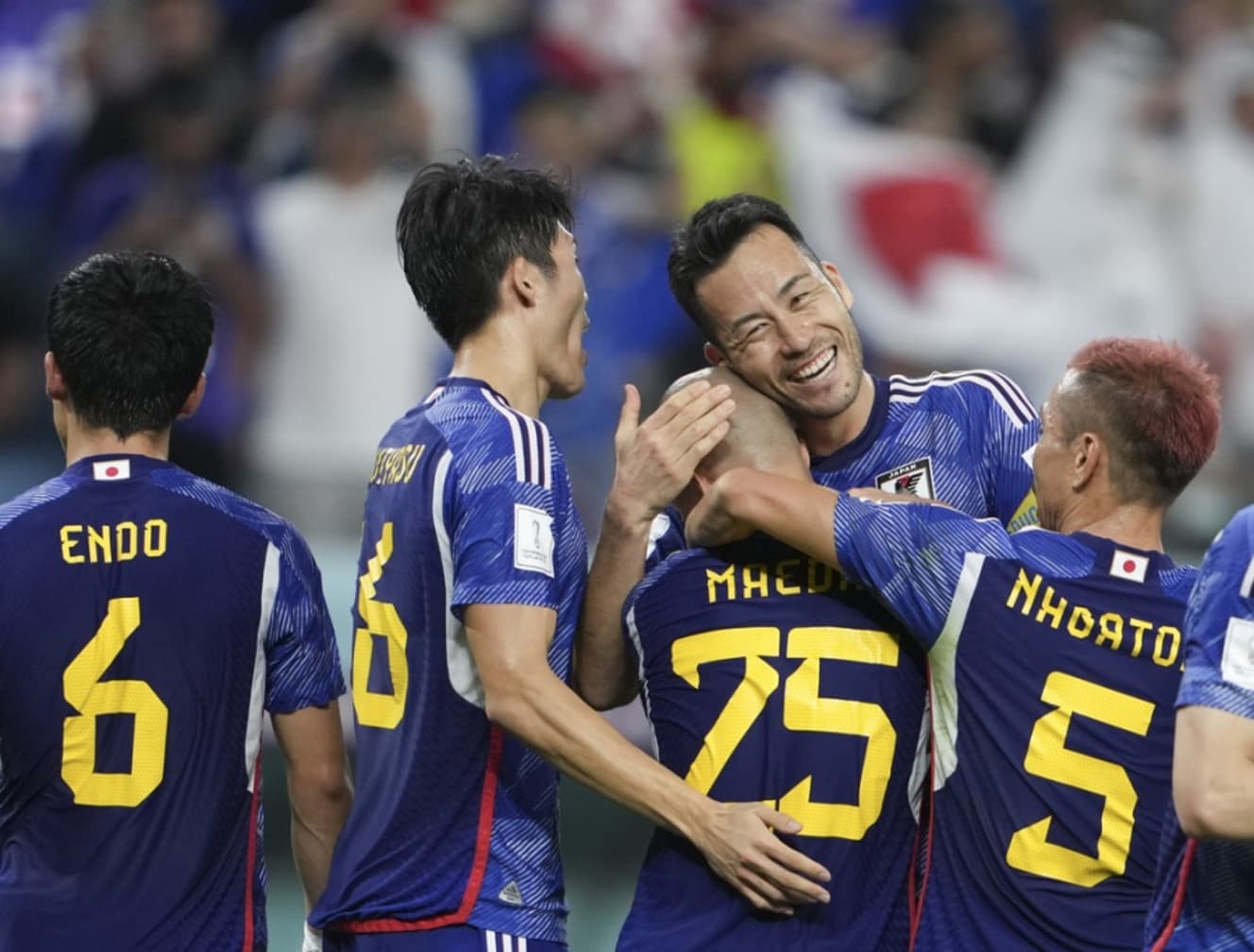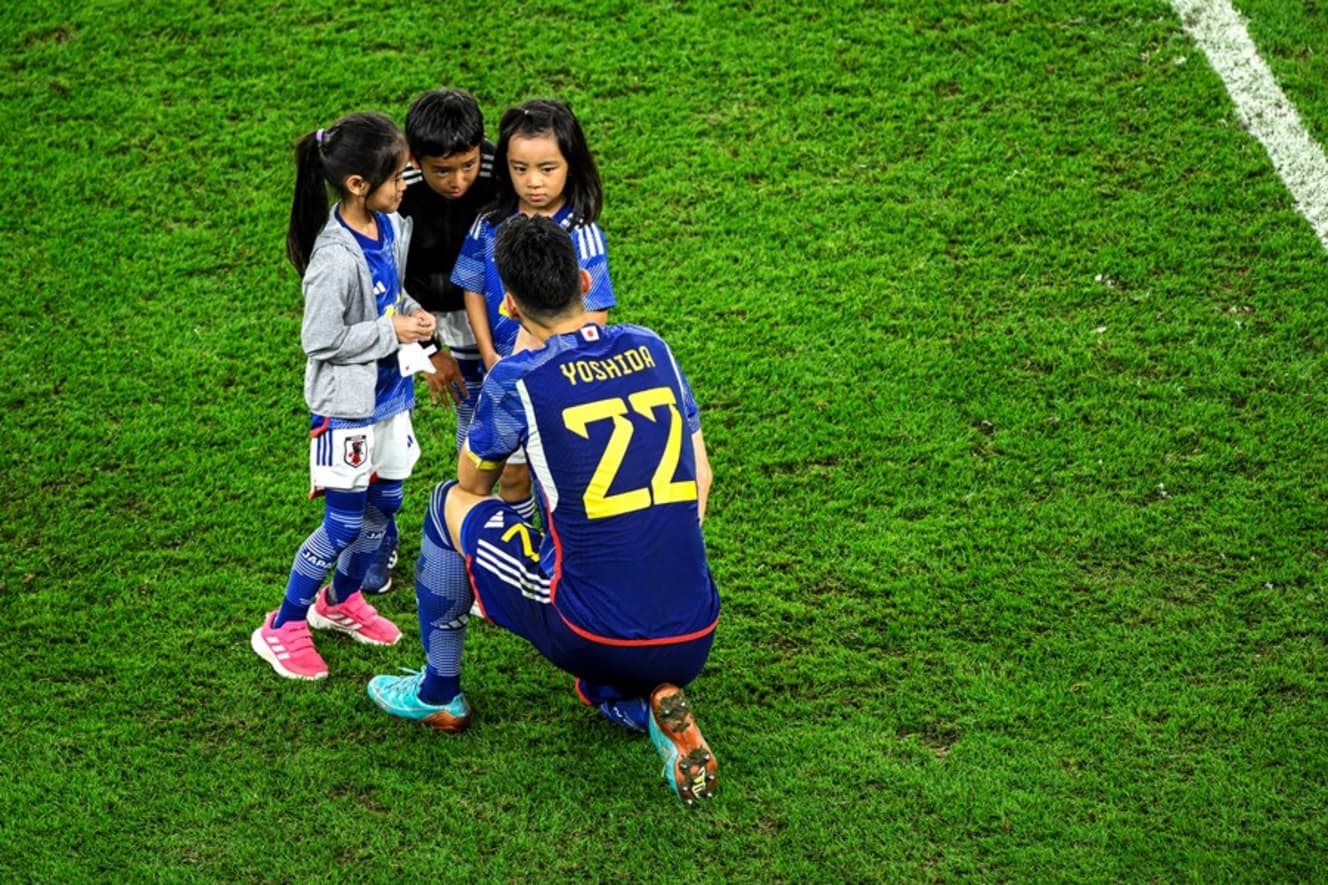Maya Yoshida’s Life: “I Want to Give Dreams to Children” – Maya Yoshida Never Ran Away from Criticism
Japan’s national soccer team faced Croatia in the quarterfinals, and Maya Yoshida, who took over as captain from Makoto Hasebe (now of Frankfurt) after the 2018 World Cup in Russia, brought momentum to the team with a last pass that led to Daishin Maeda’s first goal in the first 43 minutes. However, Croatia caught up with them in the second half and lost in a penalty shootout. The team had beaten Germany, Spain, and other World Cup winners in the past, but could not break the barrier of the first round of the final tournament even at the fourth attempt.
Even immediately after the “Rostov tragedy,” he remained resolute in his response to the interview.
Yoshida was the fourth man to take a penalty kick, but his shot was blocked by the opposing goalkeeper, the third player to miss following Takumi Minamino (first) and Kaoru Mitoma (second). In his post-match interview, Yoshida was at a loss for words.
Every day…every day I tried to break this barrier by taking in various things and challenging myself, but I am disappointed that the result was not final.
I hope that many children will watch this game, feel excited and dream about playing soccer, and that the number of children who want to become soccer players will increase, and that these children will eventually play in the World Cup and break this barrier. I want to contribute in any way I can.”
For Yoshida, the World Cup was his third consecutive appearance at the big stage at the age of 34, following Brazil in 2014 and Russia in 2018. Yoshida himself was inspired by the 2002 World Cup in Japan and South Korea, and he is a great admirer of Japan’s national team. Since the defeat in Russia four years ago, Yoshida has always wanted children to have a dream of playing soccer.
In Russia, the team had advanced to the first round of the final tournament, the same as on this day. The Belgians led 2-0 until the 20th minute of the second half, when they scored two goals in quick succession in the 24th and 29th minutes to tie the game. Yoshida was on hand to stop Fellaini, who was pushed in with his head for the second goal.
The visitors lost 3-2 in the second half and missed out on their first-ever appearance in the last eight, which had been in their sights until midway through the second half. It took only 14 seconds for the Belgian goalkeeper Courtois to feed the Belgian goalkeeper and score the goal. It is also known as the “Tragedy of Rostov.
One play before the final goal, Yoshida was in a race with Keisuke Honda to head home a left-footed CK kick, and was in a collision with Courtois. Yoshida saw the pass from Courtois and chased it desperately back to his own goal, but could not catch up with it. As soon as the net shook, he fell to his knees and onto the pitch.
A shocking defeat in a game that looked like it would rewrite history. Naturally, the players were devastated after the game, and four years ago at the World Cup, in addition to interviews for the Japanese and international media, the FIFA (Fédération Internationale de Football Association) would publish a match report with interviews with the players immediately after every game. If a goal is conceded, the defender is often held accountable. Yoshida was deeply involved in the second goal against Belgium and could have been criticized depending on what he said, but he agreed to FIFA’s request for an interview. A media source familiar with the situation at the time revealed, “In the locker room after the game, the players and the players were talking.
In the locker room after the match, it was difficult for even JSA officials, who spend time with the players on a regular basis, to talk to them, but Yoshida, who was not the captain at the time, agreed to FIFA’s request for an interview.
Yoshida, who was not the captain of the team at the time, was not even asked by FIFA for an interview: “We played a good game today, but sometimes Japan has to fight against bigger opponents that leave us with regrets. Japan needs to learn from this defeat, including at the developmental level. FIFA officials were later impressed by Yoshida’s resolute and manly attitude.
The only people who have changed history are those who have had the courage to move forward.
After winning their first game against Germany, they unexpectedly lost to Costa Rica, the team in Group E that was thought to have the best chance of winning the tournament. A slight mistake in an exchange of passes between Yoshida and Hidemasa Morita led to the final goal. After the game, he said to himself , “I understand that I will receive a lot of criticism, but criticism is a part of such a big and high-profile tournament for me personally, the team, and the national team, and if I can’t manage that, I won’t be able to stand here. If we can’t manage that, we won’t be able to stand up here.
Yoshida’s words to the players in the locker room before they went out on the pitch against Germany, their first match of the tournament, became a hot topic on social media.
The only people who have changed history are those who have had the courage to go forward… Today we are going to change history.
Most of the players who took the pitch at this year’s tournament came from overseas clubs. Shogo Taniguchi, one of the few players from the domestic team, has been reported as possibly transferring to a club in Qatar. The Japanese national team is now a group of players who have courageously ventured out of Japan to fight and win in the world. In order to become the dream of children, they must break the barrier of the first round of the final tournament and make it to the top eight. Yoshida’s message will be carried on in the future.


